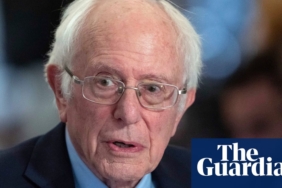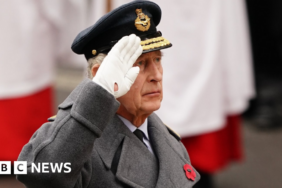Kaynak: www.theguardian.com
Elon Musk’s pro-Trump group does not choose the winners of its $1m-a-day giveaway to registered voters at random, but instead picks people who would be good spokespeople for its agenda, an attorney for the billionaire said on Monday.
Musk lawyer Chris Gober was trying to persuade a Pennsylvania judge that the giveaway was not an “illegal lottery”, as the Philadelphia district attorney, Lawrence Krasner, alleged in a lawsuit seeking to block the contest in advance of Tuesday’s US presidential election.
“There is no prize to be won, instead recipients must fulfill contractual obligations to serve as a spokesperson for the Pac,” Gober said in the hearing before Judge Angelo Foglietta.
The hearing in the battleground state comes just one day before Kamala Harris and Donald Trump will square off in the tightly contested race. Musk and his political action committee are backing the former president, with new figures showing a substantial increase in spending in recent days to at least $169m.
Musk’s offer is limited to registered voters in the seven states expected to decide the election: Arizona, Georgia, Michigan, Nevada, North Carolina, Pennsylvania and Wisconsin. America Pac says its two remaining winners will be from Arizona and Michigan, meaning that Musk would probably be able to continue the giveaway even if Foglietta blocks the lottery.
“The only people protected by Pennsylvania law are in Pennsylvania,” said Richard Briffault, a professor at Columbia Law School.
Since 19 October, the Tesla CEO has been giving a $1m check every day to a voter who has signed his petition supporting free speech and gun rights. Musk became an outspoken Trump supporter this year and has promoted Trump on his social media platform, Twitter/X.
Krasner, a Democrat, sued Musk and his political action committee in state court on 28 October to try to block the giveaway, which he called an illegal lottery that violates state consumer protection laws.
A lawyer for Krasner’s office, John Summers, called Gober’s comments a “complete admission of liability”.
“We just heard this guy say, my boss, my client, called this random,” Summers said. “We promised people that they were going to participate in a random process, but it’s a process where we pre-select people.”
Summers later showed the court a clip of Musk at a Trump rally on 19 October telling attendees that America Pac would “randomly” award $1m to people who sign the petition every day until the election. In the video, Musk also said “all we ask” is that the winners serve as spokespeople for the group.
Krasner took the stand to offer evidence. Under questioning from Summers, he said two Pennsylvania residents had been “scammed for their information” and called the giveaway a “grift” aimed at political marketing.
He said Musk had repeatedly used the word “randomly” to describe the giveaway, and that none of the documents Pennsylvania voters filled out to enter the giveaway mentioned being a spokesperson.
“That doesn’t sound like a spokesperson contract,” Krasner said.
Philadelphia is the largest city in Pennsylvania. Whichever candidate wins the state will receive its 19 electoral votes out of a total of 270 needed to win.
after newsletter promotion
The giveaway falls in a gray area of election law, and legal experts are divided on whether Musk could be violating federal laws against paying people to register to vote.
The US Department of Justice has warned America Pac the giveaway could violate federal law, but federal prosecutors have not taken any public action.
Meanwhile, new federal disclosures show that Musk and America Pac have spent $169m so far to support Trump, an increase of almost $40m in a week. The Federal Election Commission’s website shows new expenses for digital media slots either for Trump or against Harris, and that more than half – $97m – has been spent on Musk’s troubled canvassing operation.
The Trump campaign is broadly reliant on outside groups for canvassing voters, meaning the Super Pac founded by Musk, the world’s richest man, plays an outsized role in what is expected to be a razor-thin election.
“Billionaire campaign spending on this scale drowns out the voices and concerns of ordinary Americans,” David Kass, executive director of Americans for Tax Fairness, said in a statement.
“It is one of the most obvious and disturbing consequences of the growth of billionaire fortunes, as well as being a prime indicator that the system regulating campaign finance has collapsed.”
Reuters contributed reporting
Read more of the Guardian’s 2024 US election coverage



Yorumlar kapalı.